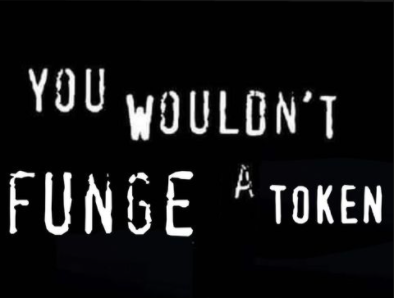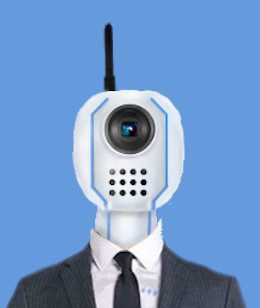


Look, I right-clicked $1.2 million.

(Full disclosure, it took a little more than right-clicking to download that image. OpenSea apparently purposefully makes it hard to download images. Not terribly hard, though. Only took me a couple of minutes to figure out.)
Hmmm do I want to spend my life savings on a house, or “invest” in NFTs? Decisions, decisions…

In the NFT the blob at the end is changing color. Maybe that helps?

Where’s the difference?

Category Art
No, lol

Windows + Shift + Son Windows,Cmd + Shift + 5macOS (it might be option instead of shift actually).
For me it’s
win+shift+son windows, not ctrl. At least if you’re taking about being able to select part of your screen to screenshot, without having to crop after the fact.Also
alt+printscreento screenshot just the selected window.
Thanks, fixed!
- shiveyarbles ( @shiveyarbles@beehaw.org ) English8•11 months ago
God, and to imagine that people were serious about that shit. I mean, the people not using it for money laundering and scams

I usedto think Gary V was a pretty smart dude, back when I used to watch him during his early wine library tv days, I bought into his hustle mentality and up to some point he was the catalyst to push myself to become a professional and study a career. After years of watching his videos and seeing him grow in his advertising company he started pushing sneaker buy and resale (basically scalping) and buying and selling Pokémon cards and was confused but figured “to each their own I guess”, shortly after he started pushing crypto and then NFTs and at that point I lost all respect for this dude because he’s either an idiot and has been lucky all this time, or he’s fucking scamming his followers in some sort of pump and dump scheme and stopped following him everywhere.

Quoting a podcast: “So you’re saying I own this jpeg but anyone else can still download it and do anything they want with it? Bruh, NFTs are just jpeg NTR”

“I have a print of the Mona Lisa! That’s just like owning the original!”

“I own a reciept that says I own the original Mona Lisa but literally anyone else in the world can possess an exact, identical copy of the Mona Lisa for free. I’m an incredible investor!!”

“I own the Mona Lisa; it’s in a hermetically sealed safe, and I have the key. The value is that I own the original, given to me by the artist; the countless knock-offs have no impact on the fact that I own the original.”
I once read that some reproductions of some famois art pieces display better technical skill than the original artist. The paintings are objectively better. The original will still fetch more.
Explain the difference to me.

Digital files are infinitely replicable and are indistinguishable from each other, which is evident using md5 hashes and similar technologies. They are meant to be exactly replicated and easily distributed. It is one of the most important components of network computing and an underlying, required principle for every large website on the internet. The originating file has no more significance or importance than the copies that function identically in every way. We don’t put the first copy of Microsoft office in an museum because it would be fucking moronic. You copy it and then you have the original.
Your collection of NFT “originals” has no value. Get out before the market completely collapses. I guarantee your NFTs will be worthless in less than a decade. .
Except this “Mono Lisa” is a digital file, which has no distinction between the “Original” and “Copies”.

If I had an exact replica of every brush stroke of the mona lisa, it would be just like owning the original.

I wouldn’t because it would not have been painted by Da Vinci

Honestly they can keep their pictures. Almost all NFTs are ugly and not worth the space on my hdd.

They think the value would go up. Why? Who would want to buy it from them?

Whatever people generally accept as a tradeable asset can be used as a currency. Be it a painting, a very old coin or a banana taped to a wall. Currency doesn’t have to be directly useful, it just needs to be unique and give some kind of confidence in value. Paper bills are well established with high confidence in their value, even though they are really just pieces of cotten paper with a specific print. However, NFTs are linked to crappy artwork which seems to generally lower the general confidence in sustained value.
The general idea of NFTs is fine, but the execution is a shitshow of dimensions beyond my belief.

The general idea of NFTs is completely stupid IMO.

Care to elaborate? I can see that the result of extremely pricey meme drawings is completely stupid. But the general idea of linking property to a non-centralized system which anyone could verify against, but basically no one could cheat, sounds like a decent concept to me.

That would only be like, who tagged this digital copy first.
What would that use be in the real world? I mean it’s not because you tagged my super invention paper before me that it has any legal ground.
It’s like using a cannon to kill a fly too IMO, just secure a server if you need to know when things happened for example.
I’m interested in what scenario you think it could be useful (except fraud ofc).

NFTs are typically linked to digital assets, but it could also reference physical assets. Artists and collectors could link their physical artwork to NFTs to formalize ownership. And it wouldn’t have to stop at art. Ownership of cars could be linked to NFTs. Manifacturers could link NFTs to chassis-references such that ownership would exist in the block chain instead of (or in addition to) national registers. Similarly NFTs could reference houses, computers, chipped pets etc.
I’m sure that there are a lot of issues with this, but the general idea seems fine at the very initial thought. Obvious flaws like increased hacking incentive or money laundering would probably turn it into a bad idea. But that’s my point. The general concept is fine, but the execution makes it a horrible mess.

But why?
And who’s in charge of errors in this immutable ledger?
I only feel it being shoehorned into some possible usefulness, conveniently forgetting everything that won’t work.
What is it trying to solve?
Also linking physical objects, that’s even worse, use it a bit and it’s digitalisation will change lol. Also you want to sell your auto radio, but it’s linked to your Car-NFT, it’s Kafkaïenne lol!

All of those questions can only be answered with a big shrug. I don’t know. I guess there exist cases of ownership disputes where NFTs would provide an easy answer, but it’s fringe. Errors in transactions would probably be tough to handle, so I don’t know what would be done there. I specified the chassis-reference on the car to say something that is unlikely to change for the car, but of course you end up with the “Ship of Theseus”-paradox.
And that brings it back to: it’s a nice solution to a problem which doesn’t really exist, and the application of it towards zero-value digital assets is a huge mess.

It depends on what you’re using them for. If it’s just a URL to an image, meh. But some real assets can be hard to track without a lot of institutional infrastructure. NFTs are a possible alternative to the expensive, hard to grow financial institutions that underpin a formal economy.
Take ownership of a house. When I was buying recently, there was a myriad of companies involved in the sale, including insurance companies in case there was a lingering claim to the property. In a country where possession of any given piece of land has very poor records, transferring ownership is that much harder. But what if instead they built their system around creating NFT corresponding to a an actual specification for the land?

Putting things on an immutable ledger? That is probably one of the worst ways you can transfer goods at all.

How so? It provides a history of the transfer of a specific piece of property.

So what do you do when there is an error?

I’m don’t know enough about the area to know if there’s a great way to deal with errors, theft, and the like.

One thing I don’t get: How were people convinced that an entry in a blockchain somehow results in ownership. People understand ownership and its limits: They lock their bikes when they leave them somewhere, because if there is no enforcement you can lose property. The NFT scammers never mentioned enforcement once, yet somehow you “owned” some ape picture. How did that happen?
Away with your nonsense. This special flavor of Kool-Aid taste good!

Note to self: Become a bridge trader.

Nfts are not simply images on the blockchain. The technology is not a scam even if scammers use one aspect of it to sell pixels for ridiculous sums of money
But please, don’t let me stand in the way of a misinformed circlejerk

2021 uuhg that year hasn’t been current in ages!

